Childhood is a wonderful time. It is often one of the happiest periods in the life of any person. As I look back at my childhood in Binatang (now known as Bintangor), I am overwhelmed by nostalgia and fond reminiscence of those almost care-free days. And I feel myself being transported back in time to the 1960s and early 1970s.
What a marvellous time I had growing up in the tiny town of Binatang!
The reason is very simple. I just hardly had anything to care or worry about, had almost no duties and problems, and simply could hang out with my friends all day long.
During my first few years on this earth, I lived in a huge wooden house near the Rejang River. I don’t have much recollection of those years as I was too young then. My memories of those years were what I learned from my parents.
I am the youngest in my family with three brothers and one sister. My sister is the third eldest. I think my dad was pinning for another daughter. Along came my third brother Chin Sien. My dad accepted it. When I was born, I guess my dad was so disappointed that his hope for another daughter had once again been dashed that he decided to give me away to a childless couple in Sibu without informing my mum. When the couple came to pick me from my home, my mum refused to let them take me. Thanks, mum!
I have never felt any resentment against my dad for wanting to give me away. He worked hard all his life and I can understand his yearning for another daughter. I am the father of 2 sons and I always envy my friends who have daughters. Fate has endowed me with 2 wonderful sons and I bear no grudges against Almighty God for not blessing me with a daughter.
My dad accepted his fate and treated me like all his other sons. I can still recall my dad bringing me to Kuching during my school holidays. We used either MV Rajah Mas, MV Pulau Kijang or MV Soon Bee. Travelling in those days was a far cry from the frills of modern day travelling. At night, we slept on the wooden deck of the ship and I could hear the engine chugging away as well as the sound of waves. The ship usually left Binatang at around 4.00 pm and stopped in Sarikei where we had our dinner. My dad always bought a chocolate bar for me in Sarikei before we boarded the ship to continue on the journey to Kuching.We usually arrived in Kuching at around 5.00 am and had to wait till daybreak before the ship could berth at the wharf for us to disembark.
Before the days of express boats, going to Sibu for holidays meant a two to three hours’ journey by motor launch such as Sin Bintang or Sin Hai Cheng (these are just my guesstimate of their names). These motor launches chugged slowly along the Rejang River affording us great views of the river and its banks. In Sibu, I always stayed with my maternal grandmother at Tiong Hua Road. My grandma dotted on her grandchildren, making sure we ate well and treating us to a lot of movies. Normally it was my youngest uncle Hwa Gain who brought us to watch movies. Oh yes, I think one of the motor launches was run by the father of my classmate Peter Wong who is the husband of Lim Mei Siang, another classmate of mine.
My dad was a close friend of Mei Siang’s father. I often saw my dad hanging out at their shop when he was free. Some of my classmates often joked about my dad, saying that he was an iconic figure in Binatang due to the fact that he usually moved around the town bare chested. My dad was reputed to be the best outboard engine repair man in Binatang at that time, with a lot of Iban people seeking his service.
Speaking of Ibans reminds me of kasam babi which is preserved wild boar meat. My dad occasionally sold kasam babi in our shop. The kasam babi was stored in metal tins (biscuit tins). I dreaded the time when Iban customers wanted to buy kasam babi when I was helping to tend my dad’s shop. The stench of kasam babi was truly overpowering. To me, it was like the smell of rotten meat. I had to open the tin and put my hand in to take out the meat. It was nauseating to say the least!
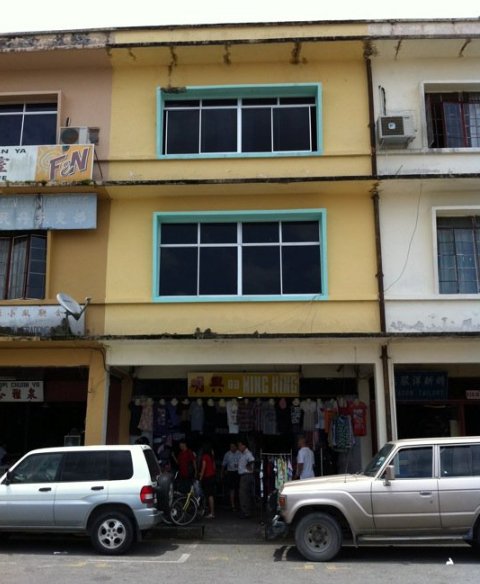
My dad's shop in Bintangor ( photo taken by my brother Chin Kiong earlier this year)....Ivy Lee's parents operated their tailoring business in the shop next to my dad's shop.
Because of my dad’s Iban customers, I was able to speak a bit of Iban when I was young but unfortunately I had lost all my Iban vocabulary. The only one phrase that I still remember is “bisih insuo” which I often overheard Iban men saying. All the while, I thought it means “got opportunity?” or “ada kantow.” It was only a few years ago that I learned from David Bujang, my Iban friend in Brunei, that I wasn’t far off. The phrase actually refers to “ah moi” opportunity. So when an Iban asks “Bisi insuo?”, he is asking whether there is any woman availability.
The huge wooden house in which I was born was home to a very extended family comprising of my own family as well as those of my paternal uncles. In later days when I was already in secondary school and staying in my father’s shop in town, I always had an uncomfortable feeling visiting that old wooden house. It used to give me the creeps! The house is no longer in existence, a victim of erosion of the river banks brought about in large parts by waves from the express boats plying the Rejang River.
By the side of the wooden house was a small river. In those days, the river was clean and my mum washed our clothes in the back of the house using the water from the river. As told to me by my mum, I fell into the river when I was just a small kid. Fortunately my dad was nearby and he jumped into the river and plucked me from what might have became my watery grave. Thanks, Dad! My dad passed way in November 1987.
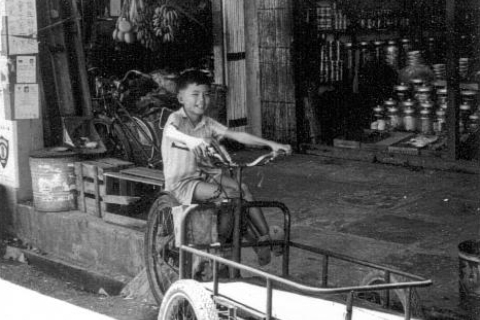
That is me sitting on my dad's one-of-its-kind tricycle in front of our shop at No. 10 Wharf Road Binatang
I still have some recollections of the British soldiers staying near our house. As a kid, I had been shocked to see them bathing naked in the river. They were actually friendly folks who sometimes gave us sweets and toffees.
And there was a plastic slipper factory next to our house. I don’t know how the name came about but we used to refer to these rubber slippers as “Jepun air tua” (Japanese slippers). I think a lot of old folks still use this name to refer to the rubber slippers.
In those days we children were expected to entertain ourselves. There was no money for toys. Our toys include things like rubber bands, bottle caps, self-made kites, marbles and catapults. And a lot of girls in those days loved playing a type of game with stones but I can’t remember the name of the game.
I cannot remember when my family moved from the wooden house to our shop in Wharf Road. I think it was when I was 3 or 4 years old.
I can remember the days when I played hopscotch and marbles with my friends in the back lanes. I was quite good at playing marbles, often winning such a big pocketful of marbles that my shorts seemed to be dragged down by the weight of the marbles. And I earned some pocket money by selling marbles to my friends. It was something like 20 pieces of marbles for 10 cents. As a kid, being able to earn some pocket money was something thrilling!
And how can I ever forget the games of hide-and-seek and cops-and-robbers that we used to play? In those days, there was little or no traffic, so Wharf Road and its back lanes and the vicinity were our playground. We mostly confined ourselves to the areas stretching from No. 1 Wharf Road to No. 12 Wharf Road and the Eastern Theatre and Ming Kwong Café. We seldom ventured into the other areas as kids were a bit territorial in those days. We did not want to get into fights with the kids in the other areas.
Swimming in the Rejang River was something we truly enjoyed. When the tides were high, we would head to the river. We dived. We played games. To impress the girls, we did somersaults, both front and back somersaults. I had on more than one occasion knock my head against the wooden walkway when I did not leap far enough when executing a back somersault.
Ships like MV Rajah Mas, MV Pulau Kijang and MV Soon Bee transited in Binatang on their way to Kuching. If we happened to be swimming in the river when these ships berthed at the wharf, we liked to show off our diving and somersaulting skills to the passengers on the ships.
Binatang used to be very famous for its Binatang oranges in those days. When there was an abundance of the oranges, you could buy about 10 katis for just $1. And as kids, we were really mischievous. Some of the orange farmers transported their oranges in wooden sampans. When they reached Binatang, they berthed their sampans at the river banks before going to the shops to get the 4-wheel carts to unload their oranges. With their sampans unattended, it was too tempting for us kids. We just swam to the sampans and helped ourselves to the oranges.
I recall with relish the tasty “kompians’ and other “kueh” made by Chop Seng Kee. As my dad’s shop was only two doors away from Chop Seng Kee, I could buy kompians hot from the furnace. To this day, I stlll miss Seng Kee’s kompians. And I loved the ice cream and ice kacang sold by our neighbour “Leng Chong”. Another favourite food of mine was the rojak sold by Moni at the market stalls.
One of the things I dread was going to the barber. My dad was quite strict with me with regards to my hair. As soon as my hair got a bit long (which was still short compared to my classmates’ hair), my dad would ask me to go for a haircut. If I am not mistaken, a haircut cost only 50 cents in those days. The barber used a type of hair cutter that looked like a miniature grass mower. After he was done with the haircut, he would powdered my neck area so that the hair remnants could be easily removed. After each visit to the barber, I looked like someone who was reporting to the army. I often felt embarrassed with my short hair in those days.
Fishing was a great pastime in those days. We fished not only in the Rejang River but also in small streams near the town areas. I can always remember the thrill of reeling in my fishing line with a fish at the end of the line. And when the water in Rejang River turned salty, it was time to fish for prawns. I was never good at fishing for prawns but my third brother Chin Sien and some of my friends were very adept at it.
Oh yes, reading has been a hobby of mine since I was a kid. I guess I may have been influenced by my eldest brother Chin Tian and my sister Kim. My eldest brother has always been an avid reader and a lot of his favourite authors ended up being my favourite authors too. My sister loved reading Chinese romance novels especially those written by “Chin Yao” and “Yee Tak” (not sure of the correct spellings). I also read the Chinese romance novels that my sister bought though my command of Mandarin was not great. But nowadays, my Mandarin has deteriorated to such a level that it would be like mission impossible if I am asked to read a Chinese novel.
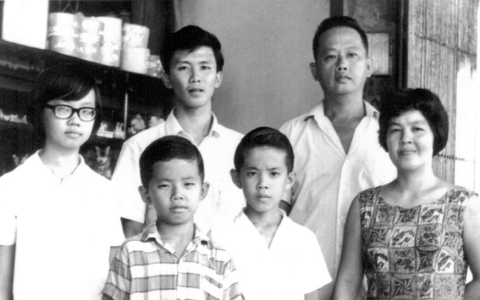
Front Row: My sister Kim, me, my brother Chin Sien and my mum Back Row: Lim Kien Chuan ( sort of adopted brother who migrated to Canada) and my late dad
My favourite shop in Binatang was Heng Chiong Bookstore. I loved to go there to look for the latest book arrivals, to buy the weekly Borneo Bulletin or the monthly Dolphin magazine. Remember Enid Blyton? Oh gosh! How I loved Enid Blyton when I was a kid! I devoured her Famous Five and Secret Seven novels, fantasizing myself being part of the Famous Five and Secret Seven.
Borneo Bulletin was a weekly newspaper in those days. The weekly paper usually arrived in Binatang on Saturday and I always felt restless until I got hold of it every week. And during my lower secondary days at Kai Chung, I became a part-time contributor of news articles about Binatang to Borneo Bulletin. I used to get a huge kick when I saw my articles in the weekly. And the fees that I earned from my articles were quite a nice tidy sum for a young kid then.
And it is impossible for me to forget the perils of living in Binatang in those days when communism was a big issue. Still remember the curfews and the helicopters dropping government propaganda leaflets? Remember the horrors of people being assassinated by the communists on suspicions that they were government informants? Or the people you know joining the communist movement and getting themselves killed in clashes with government forces? While studying at St Augustine Primary School, I remembered one occasion when the communists painted huge communist slogans on the front walls of St Augustine’s Church. In Form 1 at Kai Chung, I received an anonymous letter from someone trying to recruit me to join the communist movement. I trembled with fear and when I reached home after school, I passed the letter to my dad who burned the letter after reading it. And a year or so later, I remembered the incident where many soldiers and the police came to Kai Chung and arrested one of the students for being a communist. Fate worked in strange ways. That student later became my boss in Miri a year or so after my return from Canada.
Oh yes, movies! I have always enjoyed watching movies. And in Binatang, that meant Eastern Theatre. In those days, people did not queue up to buy tickets. I can always remember Lily Chan’s parents as they were the ones selling tickets at the theatre. People gathered in front of the ticket booths waiting for the booths to open. There were small “windows’’ just big enough for 4-5 hands to pass through at one time. Once these windows were open, people just jostled to shove their hands through the windows with money tightly held in their fists. You may sometimes end up with some light bruises on your hand, especially if you were buying the 50-cent tickets.
Another thrill was watching the occasional free movies (mostly cowboy movies) and cartoon shows at the open field in front of the Binatang District Council building. These movies were screened courtesy of Milo as part of their promotion activities. And to top it all, we could get free iced Milo!
I enjoyed having pen pals from around the world when I was young. There was one time when I went to the post office to open our post office box. I got a mail from my pen pal in New Zealand who had sent me some small pieces of New Zealand timber as a souvenir. But the weird thing was that the gum on the envelope was still wet. It was evident that someone at the post office had opened my letter thinking that there was something worth stealing. I went back to our shop and told my brother Chin Kiong about it but by the time my brother went to the post office to complain, the gum had dried up and the post office staff denied ever opening the letter.
As I compare my childhood to the childhood of kids nowadays, I feel that I am truly lucky to have such a fun childhood. No Gameboy or Playstation can ever replace the fun that I had as a kid. Life as a kid in the 1960s and 1970s is just plain fun, just plain shiok!
 CY@CY Says Welcome to my dreamscape. Where a Lim is also a Ling.
CY@CY Says Welcome to my dreamscape. Where a Lim is also a Ling.
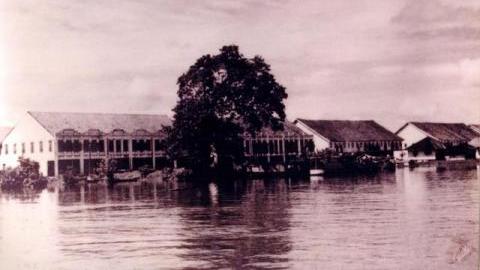
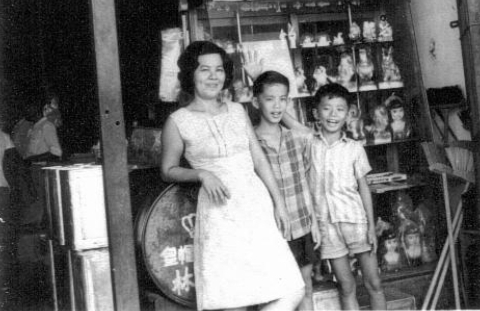
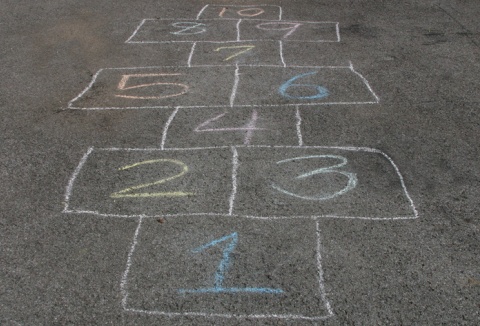
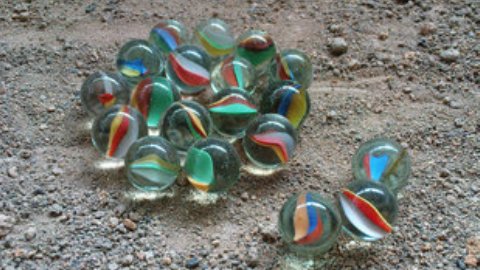
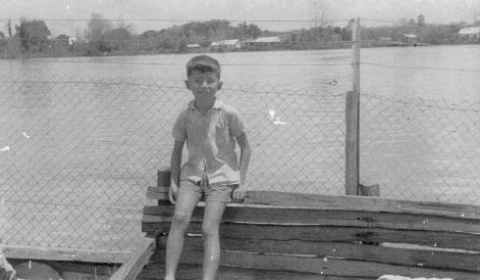
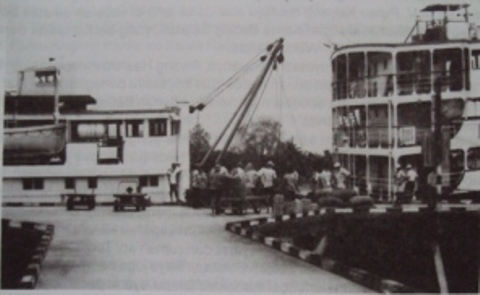
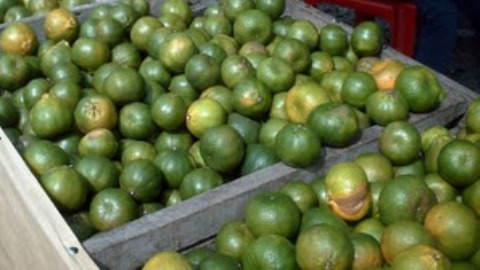
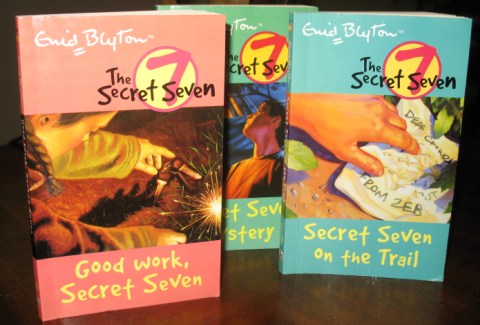
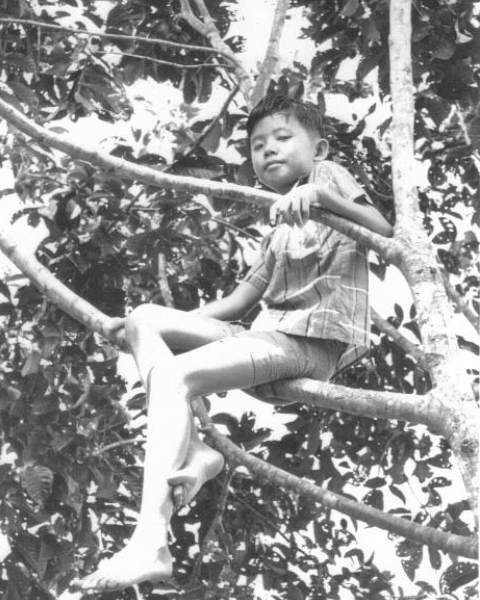
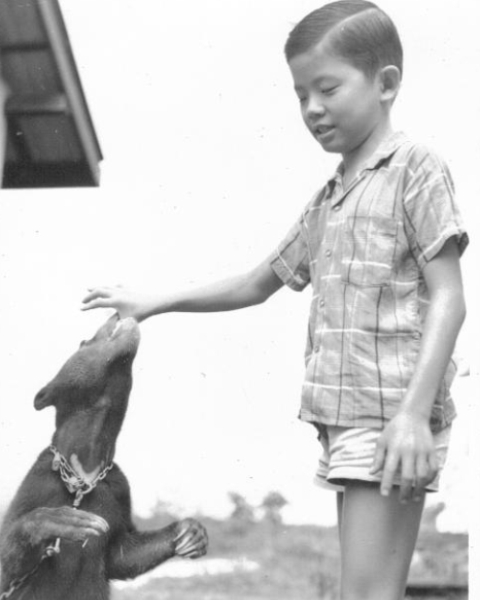
Dear Sir,
Would it be possible for me to email you re: your uncle Lim Poh Chiang? I am working on a book project and would be very interested in speaking with you regarding it.
With kind regards,
Dr. Lars Krutak
email: krutakl@si.edu
Department of Anthropology
National Museum of Natural History
Smithsonian Institution
Washington, DC 20013
I thoroughly enjoyed your article “Remenbering your childhood in Binatang”. I think I am your classmate at St.Augustine’s Primary school from 1964 to 1969. I now live in Alberta Canada.